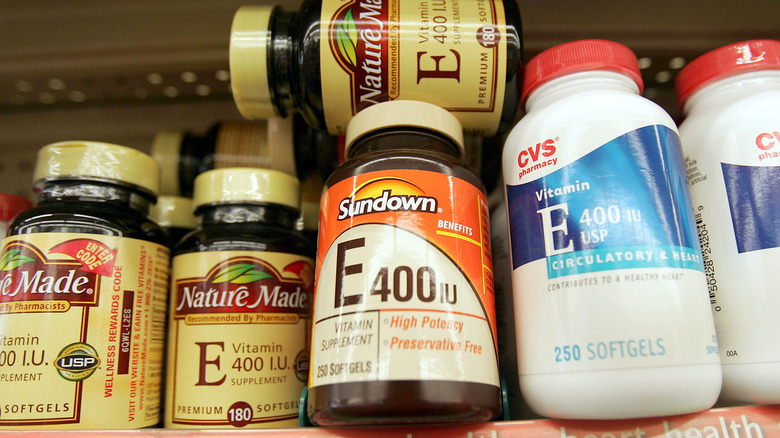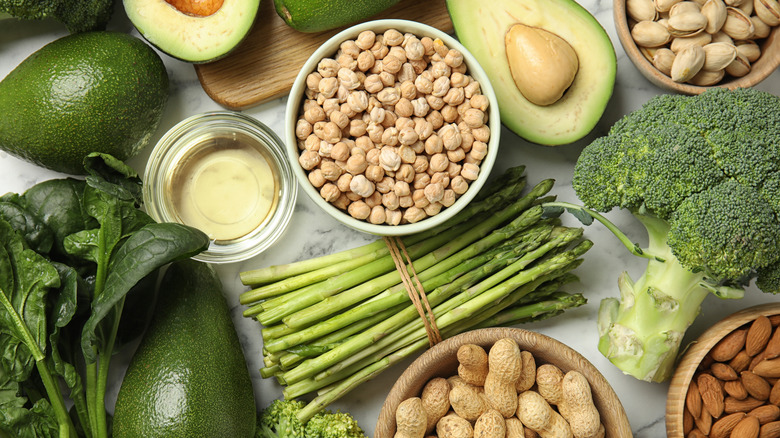You Have Too Much Vitamin E If This Happens To You
Even those of us in tip-top health know how difficult it can be to monitor vitamin intake. According to Scientific American, the amount of vitamins found in raw food depends on several factors, such as variety, time of harvest, and growing conditions. It is also difficult to determine how many vitamins, such as vitamin E, your body will absorb from a particular food.
A study published in Nutrients in 2017 found that nearly 31% of Americans are at risk for a vitamin deficiency. This may be distressing news, as an inadequate intake of nutrients can have a negative effect on your health. Vitamin deficiencies are often discussed, but what about the opposite end of the spectrum? What happens when you have too much of a specific vitamin, such as vitamin E? Here's what to look out for if you suspect you may be getting excessive amounts of this nutrient on a regular basis.
Most people get enough vitamin E through a balanced diet
Vitamin E is a fat-soluble vitamin, which means it can build up to toxic amounts over time if you consume too much, according to Insider. "If you are taking a vitamin E supplement [and] you don't have a deficiency of vitamin E, high levels can build up in the body and cause toxicity," Bansari Acharya, a registered dietitian-nutritionist, told Insider. Common symptoms of toxic levels of vitamin E include headache, diarrhea, abdominal cramps, and fatigue. "If a high dose of vitamin E is taken consistently and routinely, you may quickly experience mild symptoms such as GI distress and headaches," said Acharya. She goes on to say that you may experience only one of these symptoms, or all of them at the same time.
According to the Mayo Clinic, the recommended amount of vitamin E is 15 milligrams a day for adults. This can differ if you have a specific condition requiring more, or if you are breastfeeding, for example. Foods that are high in vitamin E include olive oils, almonds and sunflower seeds, fortified cereals, and leafy greens. Most people get enough of this nutrient through a balanced diet and don't need a supplement. Unless told otherwise by your physician or a medical professional, you might want to avoid adding a vitamin E supplement to your diet.


